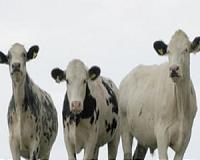 |
Houston TX (SPX) Aug 10, 2010 The simple sponge can reveal much about life on Earth. Researchers who have sequenced the genome of one Down Under inhabitant are learning just how common those roots are. In a paper published online this week in the journal Nature, Rice University's Nicholas Putnam is among a group of scientists who have established a draft genome sequence for Amphimedon queenslandica, a sponge found off the coast of Australia. The genome is helping evolutionary biologists connect the dots as they look for DNA sequences shared by metazoans, or multicelled animals. Sponges are an ancient group, with fossils dating back at least 650 million years. They are thought to have been the first group of animals to branch from all the others. Therefore, genes shared by sponges and other animals must have been present in the common ancestor of all metazoans. This ancestor would have evolved mechanisms to coordinate cell division, growth, specialization, adhesion and death; this suggests that early sponges already had a developmental set of tools similar to those in metazoans today, said Putnam, an assistant professor of ecology and evolutionary biology. "What's exciting is the new things we're learning about animal evolution," said Putnam, who got involved with the project while working at the Department of Energy's Joint Genome Institute in 2006. "For example, sponges have embryos, and having the genome helps us look at how they develop and make specific connections to developmental pathways in other animals. "It's the kind of thing that will lead to a much clearer understanding of what the very first metazoans looked like," he said. That distant ancestor may well have looked like a sponge. For the paper, Putnam helped compare Amphimedon's draft genome with 13 other complete animal genomes, including a selection of invertebrates, as well as a choanoflagellate. The researchers wrote of a "striking conservation of gene structure and genome organization" that is common to all. "We can now say that the large-scale patterns of genome organization we've seen conserved in other animal groups come from the very root of the animal tree," Putnam said. The challenge ahead is learning what they do. "The focus of my research is to understand whether patterns that have been around for a billion years have some particular functions - or if they're hanging around because not enough time has gone by to erase them." What's missing is also interesting, he said. The ancestral patterns of genome organization common to other creatures is absent from certain arthropods - invertebrates that include the likes of centipedes and lobsters - and nematodes. "If the missing pattern is neutral, you'd say that somewhere along the history of those groups, the rate of (evolutionary) change sped up enough to break the connection," Putnam said. "If it's functional, then somehow those groups overcame whatever constraint is on it in other lineages." Also puzzling is that while Amphimedon shares key developmental genes with a diverse set of metazoans, its basic structure hasn't changed in 600 million years. Given the same roots, researchers wonder why it didn't evolve more radically, and they are working to identify the differences that gave rise to, say, nerve cells in other creatures but not sponges. Unlocking the basic mechanisms of multicellularity may also help researchers understand what happens when those mechanisms go wrong and lead to cancer and autoimmune disorders.
Share This Article With Planet Earth
Related Links Rice University Darwin Today At TerraDaily.com
 Emotions Help Animals To Make Choices
Emotions Help Animals To Make ChoicesBristol, UK (SPX) Aug 10, 2010 To understand how animals experience the world and how they should be treated, people need to better understand their emotional lives. A new review of animal emotion suggests that, as in humans, emotions may tell animals about how dangerous or opportunity-laden their world is, and guide the choices that they make. The review by Bristol University's Professor Mike Mendl and Dr Liz Paul and ... read more |
|
| The content herein, unless otherwise known to be public domain, are Copyright 1995-2010 - SpaceDaily. AFP and UPI Wire Stories are copyright Agence France-Presse and United Press International. ESA Portal Reports are copyright European Space Agency. All NASA sourced material is public domain. Additional copyrights may apply in whole or part to other bona fide parties. Advertising does not imply endorsement,agreement or approval of any opinions, statements or information provided by SpaceDaily on any Web page published or hosted by SpaceDaily. Privacy Statement |